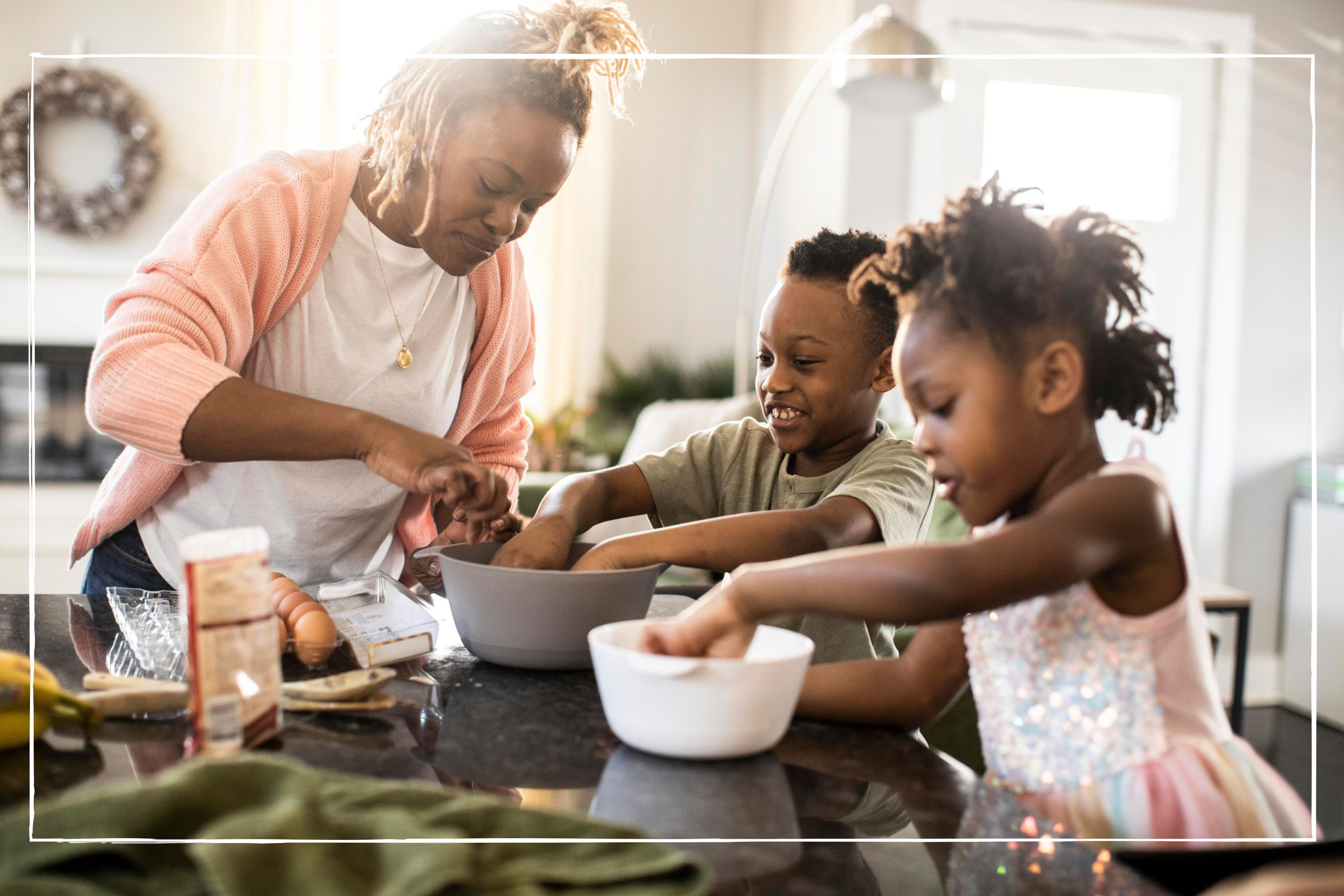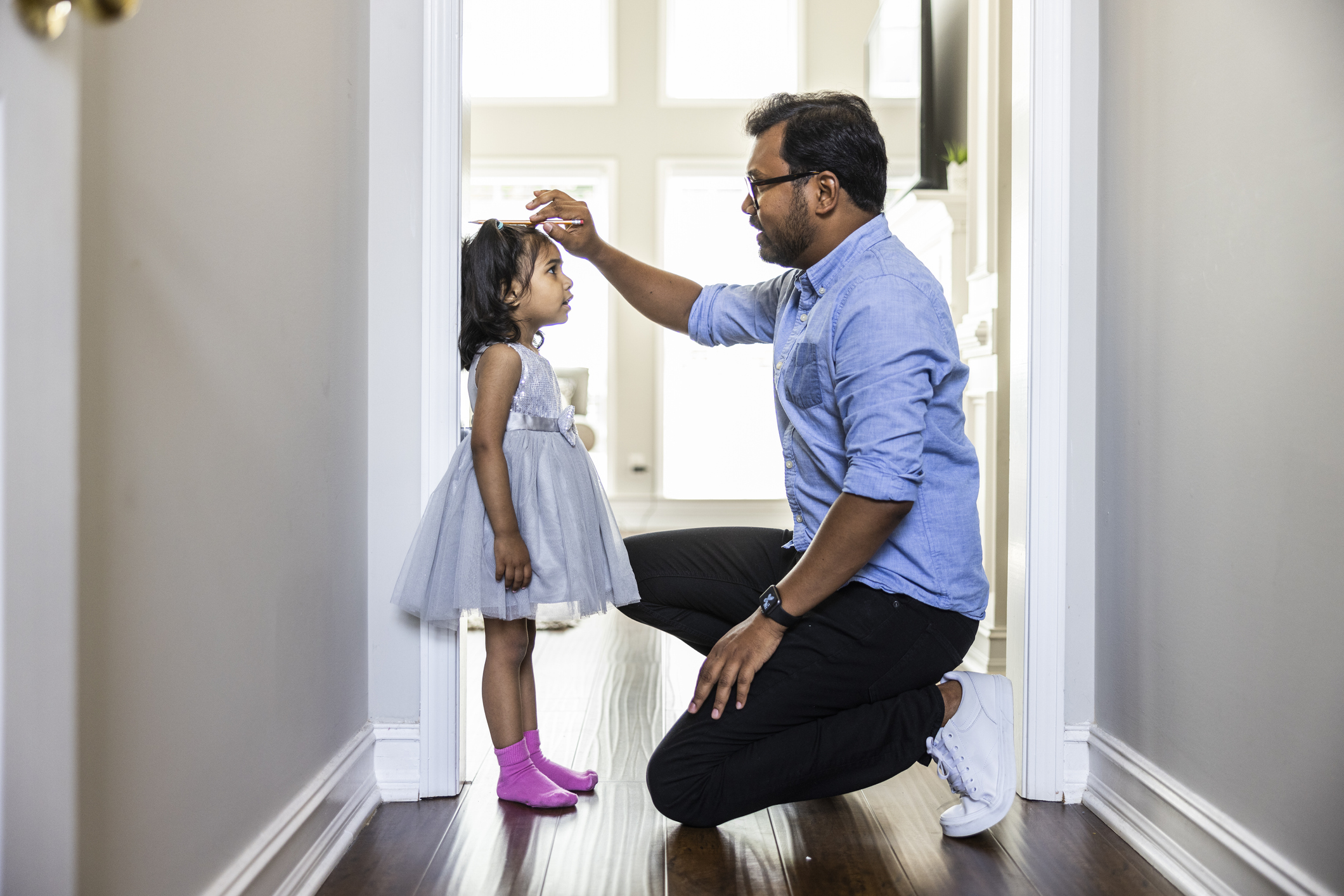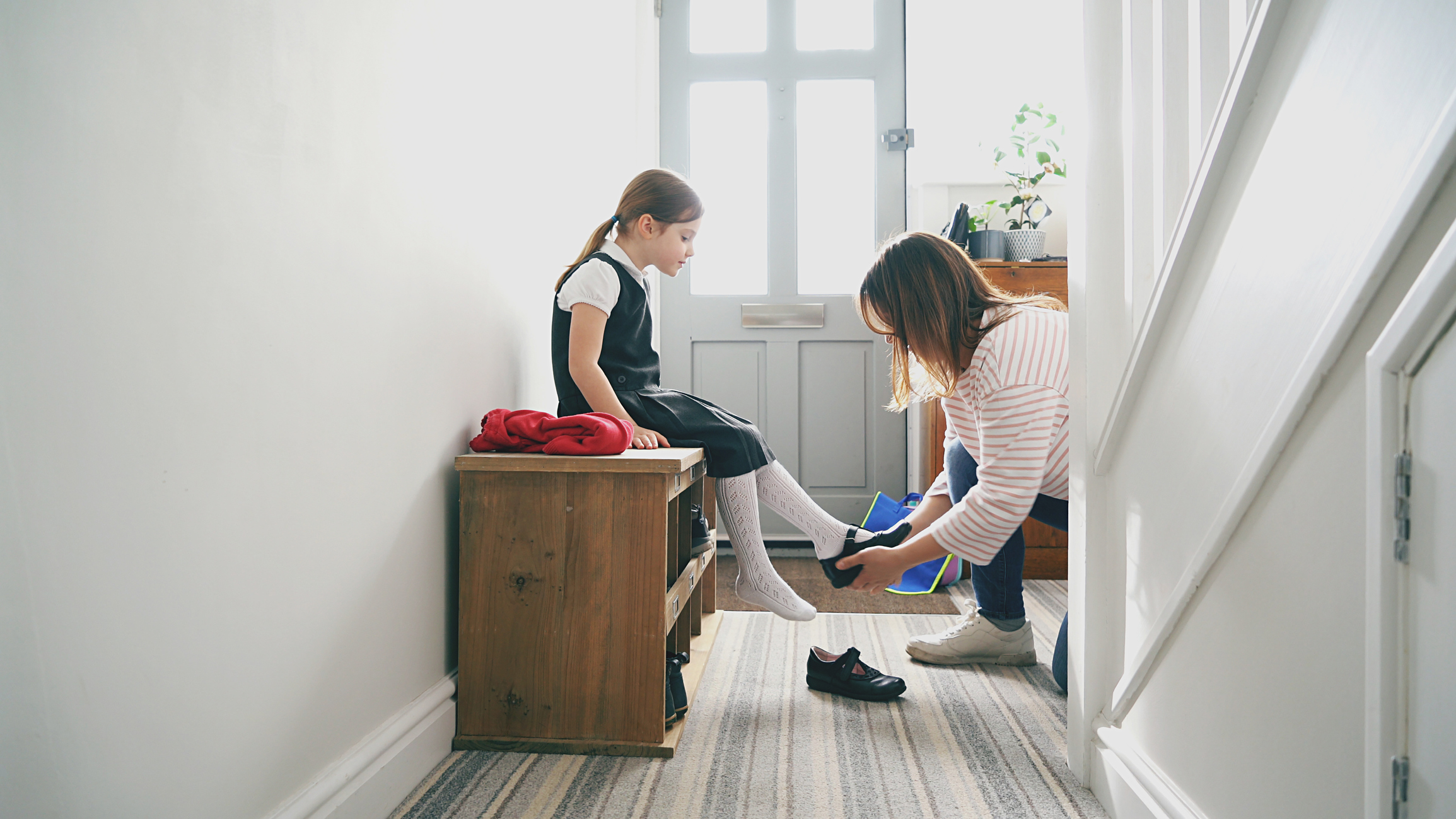What is child benefit, am I eligible and how much could I get? New rates for 2024 explained
We explain what child benefit is, who can and should claim it and how much you will get, as well as how claiming it can help boost your state pension

Rachel Lacey

Parenting advice, hot topics, best buys and family finance tips delivered straight to your inbox.
You are now subscribed
Your newsletter sign-up was successful
This article has been updated to reflect the new child benefit rates that came into effect on 6 April 2024.
Understanding what child benefit is and whether you can claim it has never been more important, especially as living costs remain high. And now that the rates have gone up, it's vital to know how much child benefit you are entitled to.
If you are worried about how much it costs to raise a child or the fact that average childcare costs are spiralling, it’s vital that you’re claiming all the benefits you’re entitled to. And child benefit payments can give your family budget a much-needed boost. You could also see if you are eligible for 30-hours free childcare or the tax-free childcare allowance.
Child benefit is not paid automatically so you do need to claim it. If you don’t, you could be missing out on £1,331 a year – more if you have multiple kids.
Goodto.com's Money Editor Sarah Handley says: “Life is really expensive at the moment and you might feel that there are no more costs that you can cut. But benefits – including child benefit – can make a huge difference, so it’s important you make sure you’re claiming everything you’re entitled to.”
What is child benefit?
Child benefit is a payment from the Government to help parents with the cost of raising a family. It was first introduced in 1977 and replaced the previous Family Allowance system. Anyone who is responsible for bringing up children can claim it. It’s not means tested, so there’s no need to prove how much you earn in order to qualify for it.
Payments are made at fixed rates - so everyone gets the same rate regardless of how much they earn or have in the bank.
How does child benefit work?
Child benefit lets you claim a weekly payment for every child in your household – and there is no limit on the maximum number of children you can claim for. Payments continue until the age of 16, or 20 if they are in ‘approved’ full-time education or training. Child benefit stops on the 31 August on or after a child’s 16th birthday, so if your child is staying in full time education or taking part in an approved training course, then you will need to reapply for child benefit, otherwise your payments will stop.
Parenting advice, hot topics, best buys and family finance tips delivered straight to your inbox.
However, only one person per household can claim child benefit and, as Clare Moffat, pensions and legal expert at Royal London points out, you shouldn’t automatically assume that it should be mum. “If there is going to be a non-working parent in the household, then it should be that person who claims the child benefit. This is because claiming child benefit means you automatically get National Insurance (NI) credits, which help with qualifying for the state pension. You get 12 years of NI credits for each child. It also means that your child will automatically receive a NI number when they are approaching 16, rather than having to apply for it.”
Child benefit is paid every four weeks, directly into your bank or building society account.

How much is child benefit?
Child benefit is paid at two different rates, both of which went up in April 2024. For your first child, you will now receive £25.60 per week, which works out as £1,331.20 per year. For any subsequent children, you will receive £16.97 per week, which equates to £882.44 per year.
The money will be paid directly to your bank, building society account or credit union account every four weeks - usually on a Monday or Tuesday.
| Who the allowance is for | Rate (weekly) |
|---|---|
| Eldest or only child | £25.60 |
| Additional children | £16.97 per child |
Source – HM Revenue & Customs
If you are a single parent or are claiming certain benefits, including income support, you may be eligible to claim weekly payments instead.
If you want to change the way your payments are made, or have them paid into a different account, contact the child benefit helpline on 0300 200 3100.
Am I eligible to claim child benefit?
Anybody who has parental responsibility for one or more children is able to claim child benefit. However, the benefit is not as straightforward as it once was. Since a change of rules in 2013, once you or your partner earn over a certain amount a year, while you can still receive child benefit, you will be liable for a High Income Child Benefit Tax Charge.
Child Benefit is a universal benefit available to anyone responsible for bringing up children. Even if you think you don’t need the money, or if you’re worried about the High Income Child Benefit Charge, it is still important to make a claim. Find out more https://t.co/zAiklXbBis pic.twitter.com/ebszvF0CqgJune 22, 2022
However, child benefit is finally becoming fairer. In his Spring Statement 2024, Chancellor Jeremy Hunt announced that the threshold at which parents incur the High Income Child Benefit Tax Charge would be increased from £50,000 to £60,000, which will take 170,000 families out of paying it all together. The upper limit for the High Income Child Benefit Tax Charge has also been increased from £60,000 to £80,000, which means the window for tapered payments is increased.
If you want to carry on receiving child benefit but need to pay the charge, you should tell HMRC by registering for self-assessment and filling in a tax return. Your personal allowance will then be changed to deduct the tax charge.
You can use the government's child benefit tax calculator to see how much tax you pay depending on how much you earn.

Should I claim child benefit if I have to pay the money back?
Lots of couples decide not to claim child benefit if it means they’ll have to complete a tax return and pay the money back. However, that may not be a sensible move, especially if you take time out of work to raise your family. This is because claiming child benefit will earn you national insurance credits that work to build your entitlement to the state pension (you need 35 years of national insurance contributions to get the full state pension).
Royal London's Clare Moffat says: “The most important point is to always claim child benefit for each child to ensure you qualify for NI credits.”
In addition, with the new threshold changes, which came into effect on 6 April 2024, you might now qualify for the whole child benefit entitlement, and no longer have to pay the high income tax charge.
What happens if I’ve missed out NI credits by not claiming child benefit?
There’s no need to panic if you’re worried you’ve missed out on NI credits that you were entitled to, by not claiming child benefit.
As Clare Moffat explains, the government is planning to rectify the situation. “Many people didn’t claim child benefit in the past because of the High Income Child Benefit Charge and could be worried about losing out on state pension credits. However, the government announced at the end of April 2023 that these parents wouldn’t be disadvantaged when they start claiming state pension. It has said there will be legislation introduced which will allow someone to claim NI credits retrospectively and more information will be available in in due course.”
How to claim child benefit
You can start claiming child benefit as soon as you have registered your child’s birth, or the child you’ll be responsible for comes to live with you. Claims can be backdated for up to three months, however it can take up to 16 weeks to process new child benefit claims so it’s worth applying as soon as possible.
To get started – you need to download and fill in a child benefit claim form (CH2). This may look daunting, but the information needed is basically your personal details like your name, address, date or birth and national insurance number, along with your partner’s details, if that’s relevant. You also need to complete details of the child, or children you are claiming for and how you want your child benefit paid.
Once the form’s completed, send it back to the address on the form along with any requested documents – usually your child’s birth or adoption certificate. These must be originals - not photocopies – and should be returned to you within four weeks.
If at a later stage, you want to add another child to your claim, say after having another baby, you can call the child benefit helpline directly on 0300 200 3100. You will need your national insurance number and the child’s birth certificate in order to add them to your existing child benefit claim.

What happens to your child benefit if your family splits up?
If you and your partner split up, it’s usually the person whom the child lives with for the majority of the time who will claim child benefit.
However, in the event you split up and have two children and decide that, under your new living arrangements, one of your children will live with you and one will live with your ex-partner, then you can both claim child benefit.
In this case, you will both be able to claim the higher rate of £25.60 per week for your first child, however if you have more children, you can only claim £16.97 for each and every other child.
If you move in with a new partner who also has children, then the oldest child will be eligible for the higher £25.60 rate, and any other children will get the lower £16.97 weekly rate.
When does child benefit stop?
Payments will stop on 31 August on, or after your child’s 16th birthday, or when your child leaves further education or training before their 20th birthday.
Sarah Coles, head of personal finance at Hargreaves Lansdown explains what counts as further education or training: “This includes things like A-levels, T levels and NVQs up to level 3. If they are still learning, you will continue to receive it, until the end of February, May, August or November after they leave the approved education. However, you have to tell the Child Benefit Office they’re still studying or it will stop”.
You should also tell the child benefit office about any change in your child’s circumstances as this may affect whether or not payments will stop, even temporarily. Changes include if your child starts paid work for more than 24 hours a week, lives away from you for more than eight consecutive weeks or goes abroad for more than 12 weeks.
You can report any changes to either your child’s circumstances, or your own, online or by calling the child benefit helpline on 0300 200 3100.
What other benefits can you claim as well as child benefit?
You can still claim other benefits while you are claiming child benefit. Any other benefits or payments you can claim will depend on your financial and living situation. If you are not working, or on a low income, it’s worth using a free online benefits calculator to see what you could be entitled to.
If you are a new parent, as well as seeing which benefits you are entitled to, it's also worthwhile seeing what free baby stuff you could get too.
- Rachel LaceyPersonal finance expert
